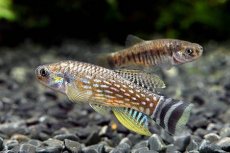New publications
Why is the dead sea called the dead sea?
Last reviewed: 04.07.2025

All iLive content is medically reviewed or fact checked to ensure as much factual accuracy as possible.
We have strict sourcing guidelines and only link to reputable media sites, academic research institutions and, whenever possible, medically peer reviewed studies. Note that the numbers in parentheses ([1], [2], etc.) are clickable links to these studies.
If you feel that any of our content is inaccurate, out-of-date, or otherwise questionable, please select it and press Ctrl + Enter.

When you ask yourself: why is the Dead Sea called dead? Scenes from a horror movie come to mind. But everything is much simpler. As you know, the Dead Sea is one of the saltiest bodies of water on the Planet. One liter of the lake's brine contains over 270 grams of salt fractions. For comparison: in the World Ocean this figure is 35. In Hebrew, the name of this body of water sounds like Yam a melekh - the Sea of Salt or the Sea - the killer - an accurate description.
A large volume of sodium chloride (HCL is the chemical formula for sodium salt) significantly increases the density characteristics of water. Until recently, it was believed that it was simply impossible to live in such an environment; neither animals nor fish survive in the waters of the Dead Sea. Once in concentrated salt water, it instantly dies. Only certain types of microorganisms are able to survive there.
During the evolution of the Earth, after multiple faults and shifts in the earth's crust, the deepest stone bowl was formed on the site of the current lake, where all the nearby rivers began to flow, getting trapped. The climatic features of the area, with its high temperatures, forced the water to evaporate for many centuries, leaving salt deposits.
Dead Sea Fish
According to scientific sources, the conducted research, analysis of water and silt deposits of coastal and bottom zones confirm the absence of living forms. Academic science says that there is a limited number of subspecies of bacteria that can feel comfortable in such an environment.
But recent research has sparked a sensation about the existence of a Dead Sea fish that manages to live where others cannot.
Mother-of-pearl aphanius (Aphanius dispar). This fish species is widely represented in the wild in the waters of the Red and Mediterranean Seas, the Persian Gulf, and the rivers and lakes of the Arabian Peninsula. The aphanius is a small fish, only about seven centimeters. It has a strong, elongated, rounded body. The thickness is approximately one and a half centimeters. The color of the individual depends on its habitat. The dominant color varies from bluish-brown to silvery-blue. The front part of the body is speckled. Closer to the tail, the dots merge to form blue stripes that cross the body vertically.
The dorsal and anal fins are somewhat elongated. The caudal fin has a classic shape with two or three dark blue stripes. An interesting fact is that in a stressful situation, the pearly aphanius loses color and becomes almost transparent.
The subspecies that lives in the Dead Sea brine is called A. dispar richardsoni. Its habitat is exclusively the western coast of the reservoir, where the rivers provide the maximum supply of fresh water. Due to this, the degree of salt concentration in the water of this area is close to the saturation level of ordinary sea water. Some varieties of algae are also found here, which serve as food for fish.
If desired, you can go fishing. A seine for catching carp (made of fishing line, with small cells) is suitable for this. The seine is stretched across the current. The mother-of-pearl aphanius is considered an edible fish and is served to tourists in small Israeli restaurants as an exotic. Its meat is fatty and salty. It does not have any special healing properties, but it is rich in phosphorus, minerals and microelements.
If you want to see and try this miracle - hurry!!! Scientists predict that in 60-75 years, with such climatic anomalies, the Dead Sea will disappear from the face of the Earth.
Thinking about the question: why is the Dead Sea called dead? You involuntarily come to the conclusion that the reason that gave birth to this Wonder of the World – Salt – is now ready to destroy it!
 [ 1 ]
[ 1 ]
